Results
-
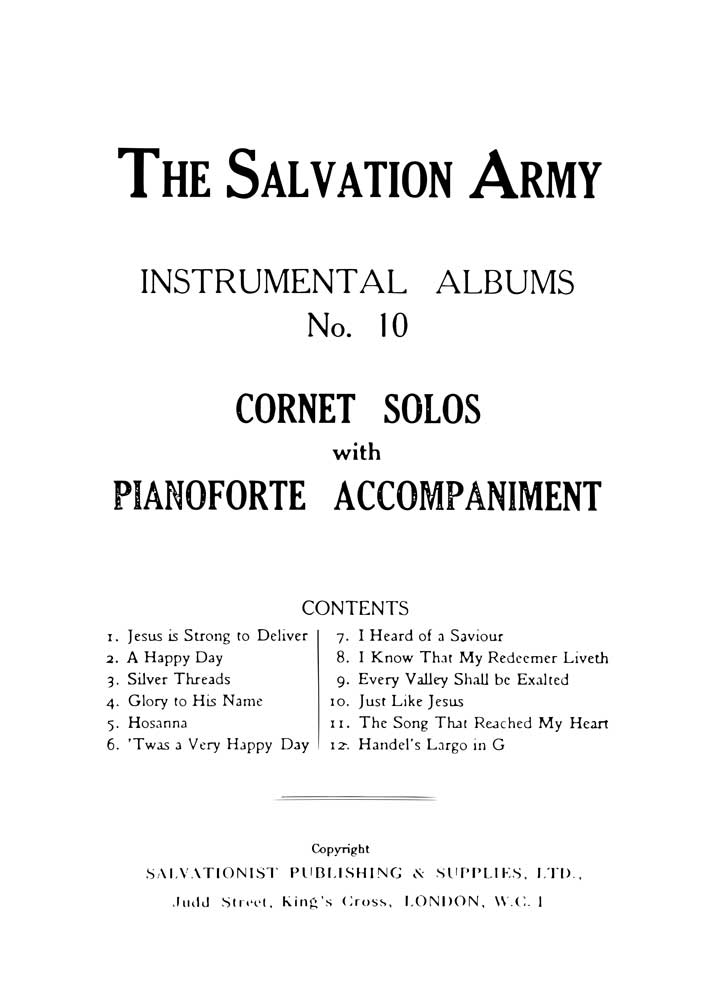 £14.95
£14.95Instrumental Album No.10 - Cornet Solos
Includes: Jesus is strong to deliver; A Happy Day; Silver Threads; Glory to his name; Hosanna; Twas a Very Happy Day; I Heard of a Saviour; I Know that my redeemer liveth; Every valley shall be exalted; Just like Jesus; The song that reached my heart; Handel's Largo in GInstrumentation: Cornet with Piano Accompaniment
Estimated dispatch 7-14 working days
-
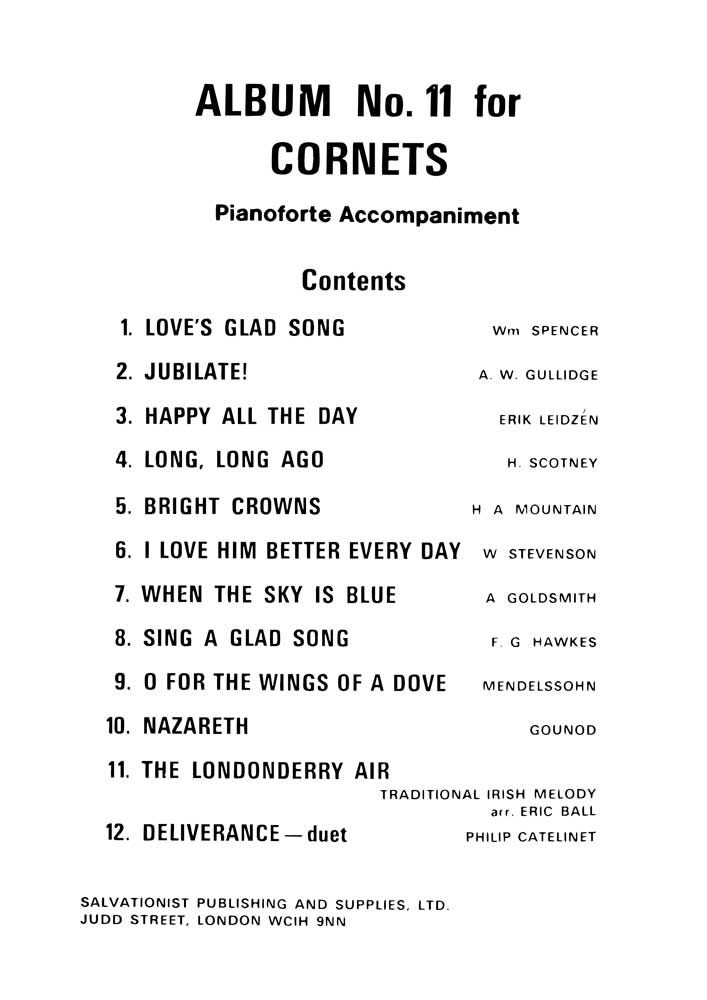 £14.95
£14.95Instrumental Album No.11 - Cornet Solos
Includes: Love's glad song; Jubilate!; Happy all the day; Long, long ago; Bright crowns; I love him better every day; When the sky is blue; Sing a glad song; O for the wings of a dove; Nazareth; Deliverance - DuetInstrumentation: Cornet with Piano Accompaniment
Estimated dispatch 7-14 working days
-
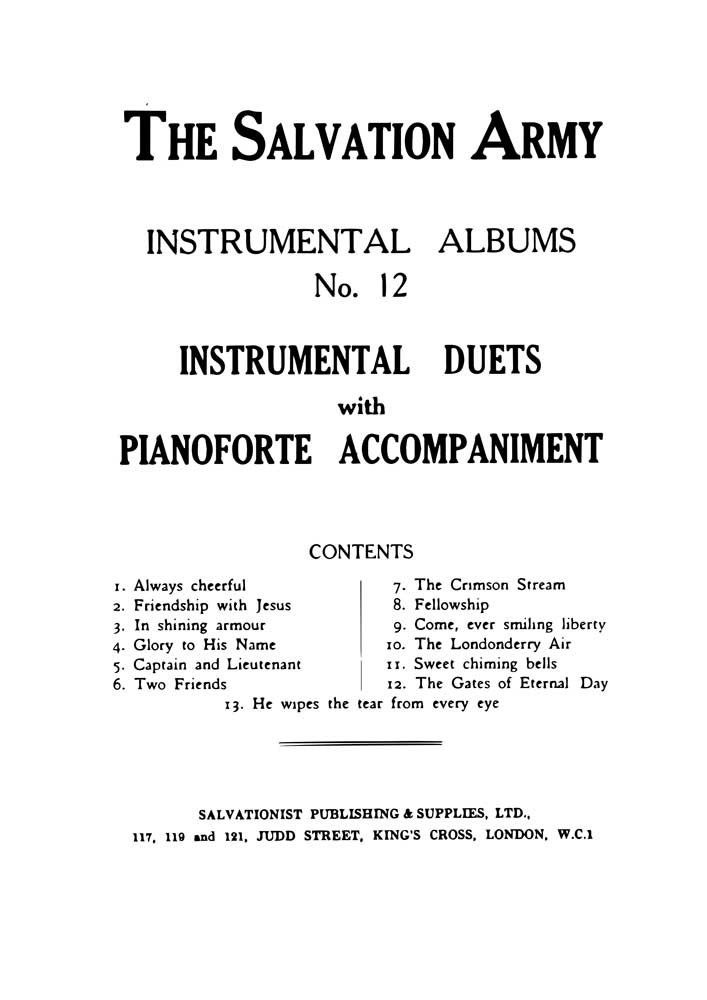 £14.95
£14.95Instrumental Album No.12 - Instrumental Duets
Includes: Always cheerful; Friendship with Jesus; In shining armour; Glory to his name; Captain and Lieutenant; Two Friends; The Crimson Stream; Fellowship; Come, ever smiling liverty; The Londonderry Air; Sweet chimings bells; The gates of eternal day; He wipes the tear from every eyeInstrumentation: Bb & Eb Duets with Piano Accompaniment
Estimated dispatch 7-14 working days
-
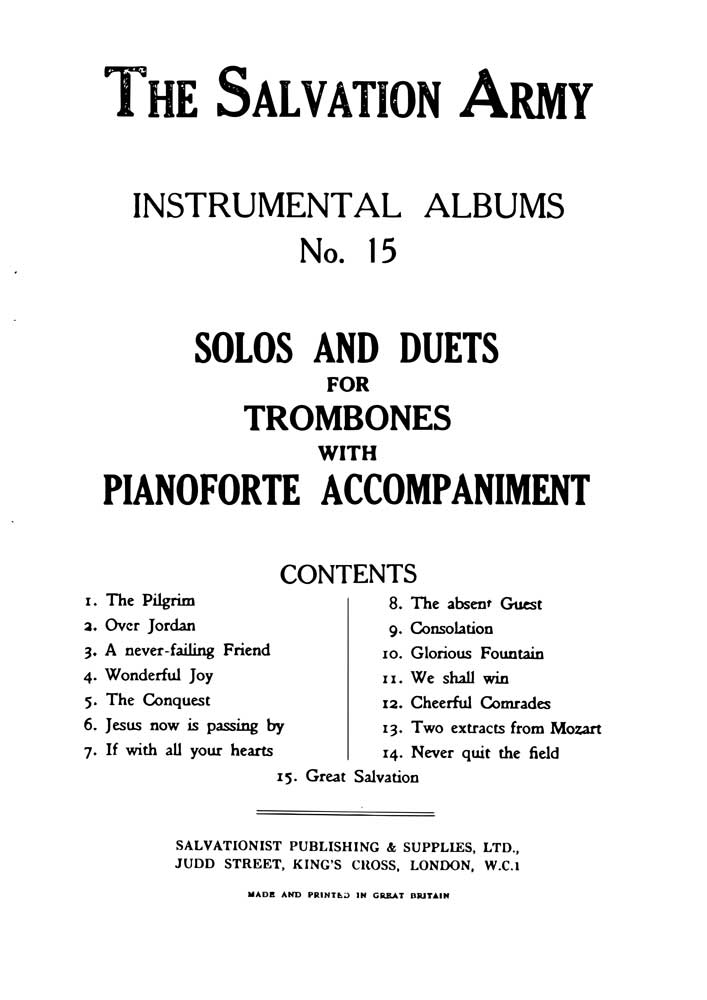 £14.95
£14.95Instrumental Album No.15 - Solos & Duets Trombone
Includes: The Pilgrim; Over Jordan; A never-failing friend; Wonderful Joy; The Conquest; Jesus now is passing by; If with all your hearts; The absent guest; Consolation; Glorious Fountain; We shall win; Cheerful Comrades; Two extracts from Mozart; Never quit the field; Great SalvationInstrumentation: Trombone with Piano Accompaniment
Estimated dispatch 7-14 working days
-
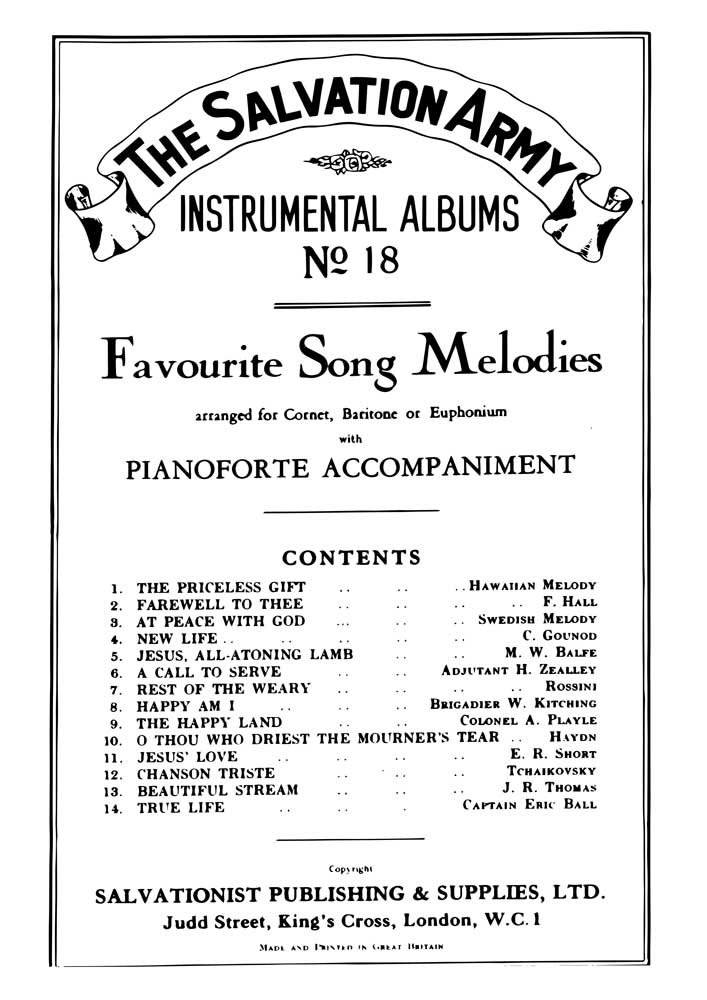 £14.95
£14.95Instrumental Album No.18 - Favourite Song Melodies
Includes: The Priceless gift; Farewell to thee; At peace with God; New Life; Jesus, all-atoning lamb; A Call to serve; Rest of the weary; Happy am I; The Happy Land; O thou who driest the mourner's tear; Jesus' Love; Chanson Triste; Beautiful Stream; True LifeInstrumentation: Cornet, Baritone or Euphonium with Piano Accompaniment
Estimated dispatch 7-14 working days
-
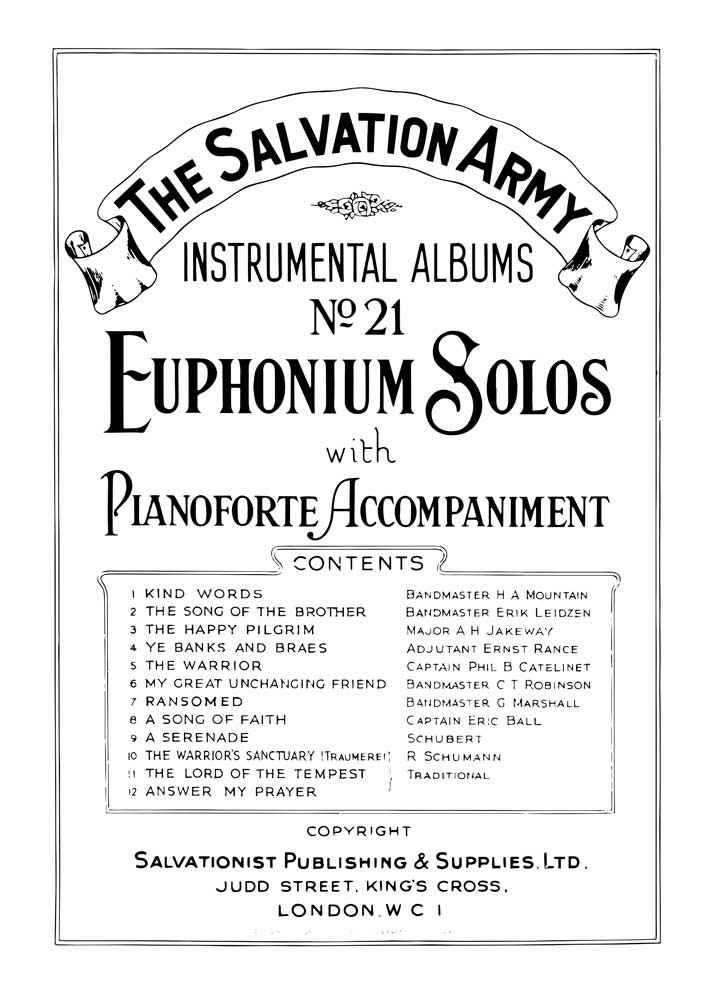 £14.95
£14.95Instrumental Album No.21 - Euphonium Solos
Includes: Kind Words; The Song of the brother; The happy pilgrim; Ye banks and braes; The Warrior; My great unchanging friend; Ransomed; A Song of Faith; A Serenade; The Warrior's Sanctuary; The Lord of the tempest; Answer my prayerInstrumentation: Euphonium with Piano Accompaniment
Estimated dispatch 7-14 working days
-
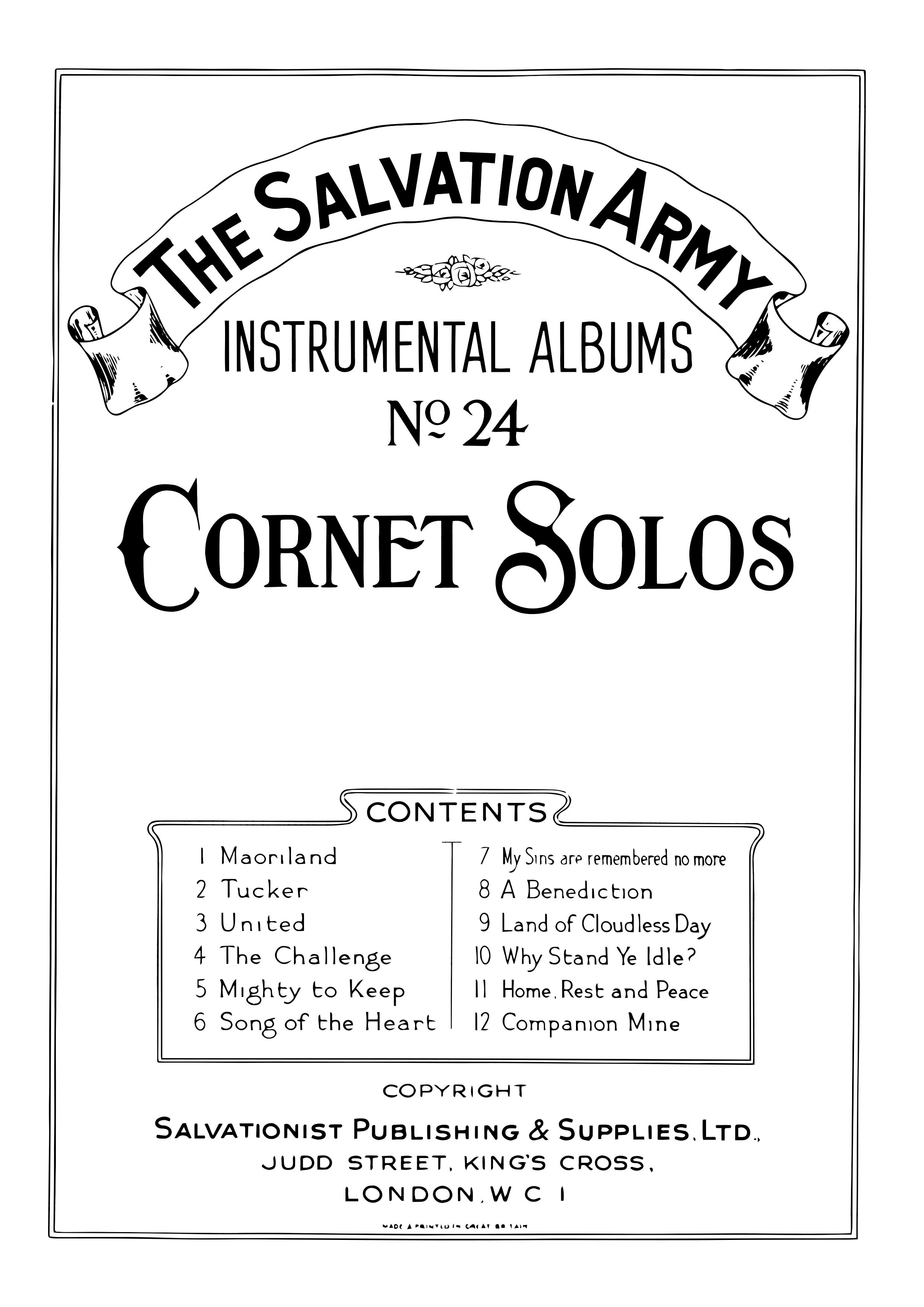 £14.95
£14.95Instrumental Album No.24 - Cornet Solos
Includes: Maoriland; Tucker; United; The Challenge; Mighty to keep; Song of the Heart; My sins are remembered no more; A Benediction; Land of cloudless day; Why stand ye idle?; Home, rest and peace; Companion MineInstrumentation: Cornet with Piano Accompaniment
Estimated dispatch 7-14 working days
-
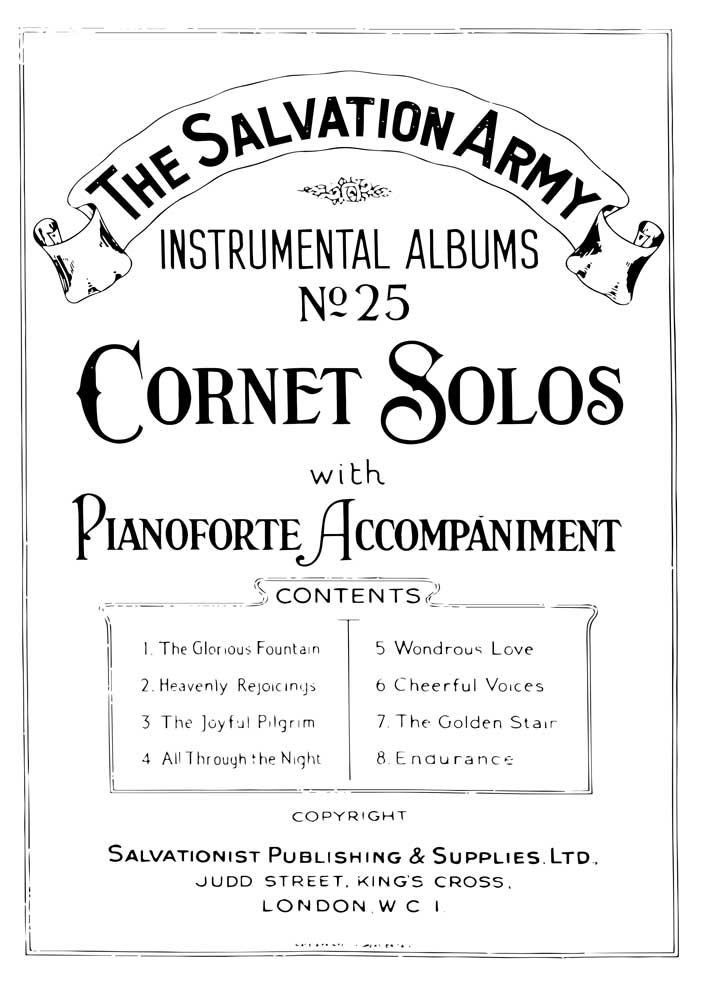 £14.95
£14.95Instrumental Album No.25 - Cornet Solos
Includes: The glorious fountain; Heavenly rejoicings; The joyful pilgrim; All through the night; Wondrous Love; Cheerful Voices; The golden stair; EnduranceInstrumentation: Cornet with Piano Accompaniment
Estimated dispatch 7-14 working days
-
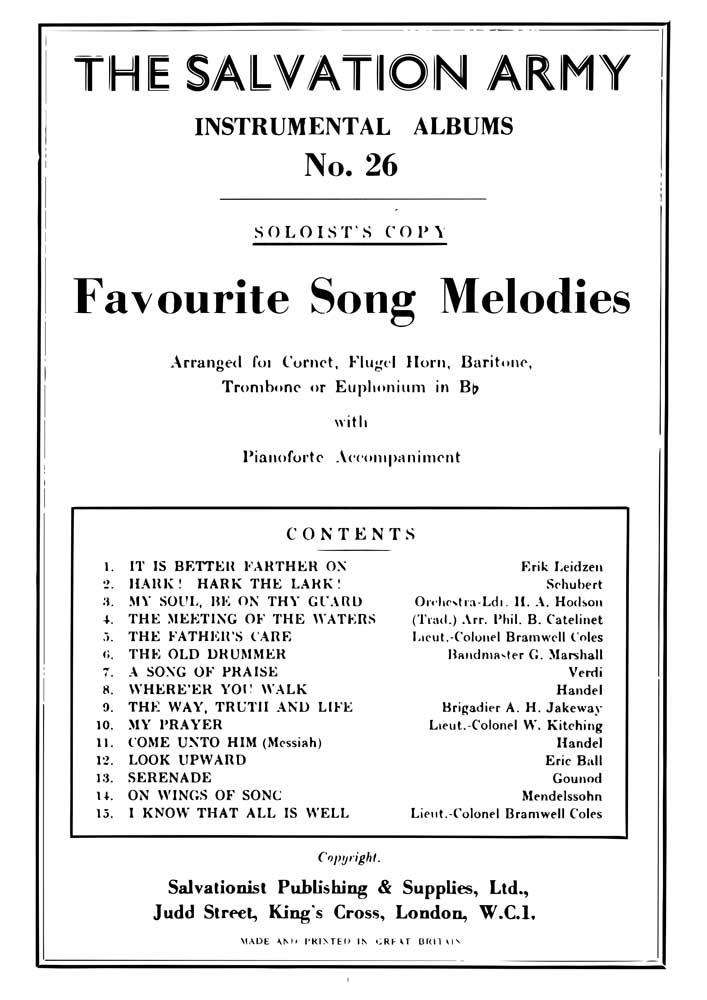 £14.95
£14.95Instrumental Album No.26 - Favourite Song Melodies
Includes: It is better farther on; Hark! Hark the Lark!; My sou, be on thy guard; The meeting of the waters; The father's care; The old drummer; A song of praise; Where'er you walk; The way, truth and life; My Prayer; Come unto him (Messiah); Look Upward; Serenade; On wings of song; I know that all is wellInstrumentation: Arranged for Cornet, Flugel, Baritone, Trombone or Euphonium in Bb with Piano Accompaniment
Estimated dispatch 7-14 working days
-
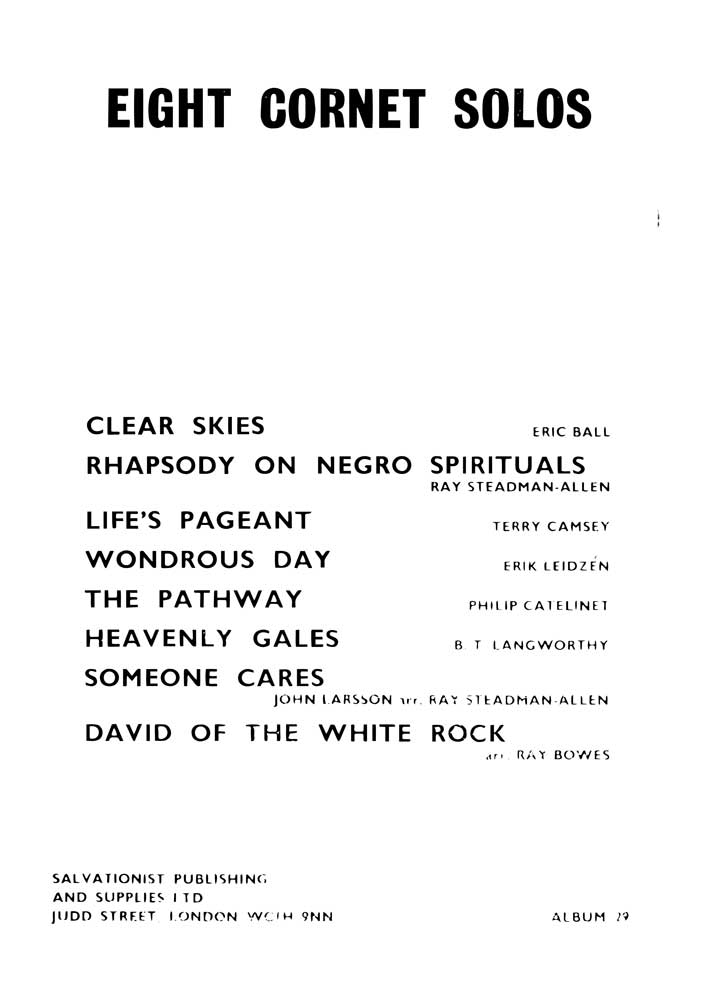 £24.95
£24.95Instrumental Album No.29 - Eight Cornet Solos
Includes: Clear Skies; Rhapsody on Negro Spirituals; Life's Pageant; Wondrous Day; The Pathway; Heavenly Gales; Someone Cares; David of the White RockInstrumentation: Cornet with Piano Accompaniment
Estimated dispatch 7-14 working days
